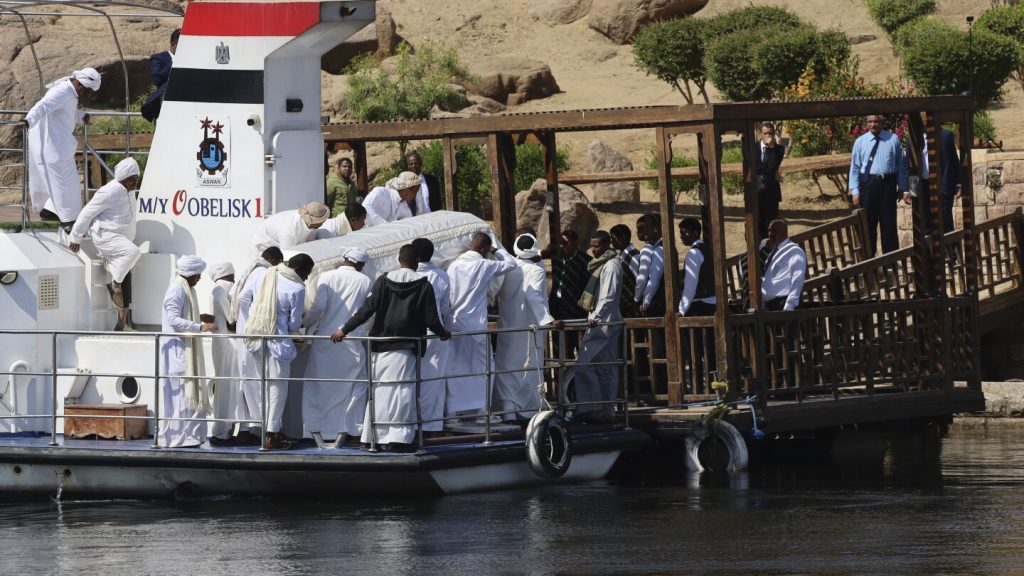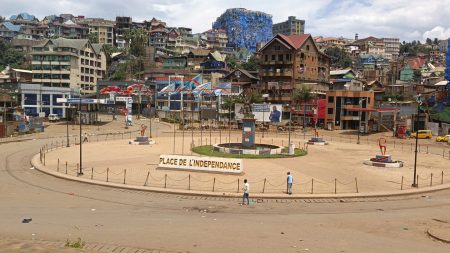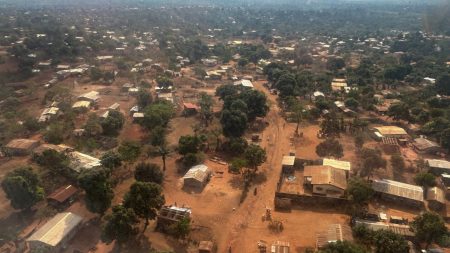The Passing of a Spiritual Leader: Aga Khan IV Laid to Rest in Aswan, Egypt
The world witnessed a significant moment in history as the Aga Khan IV, the revered spiritual leader of the Shiite Ismaili Muslim community, was laid to rest in a private ceremony in Aswan, Egypt. The announcement of his passing was made by the Aga Khan Development Network and the Ismaili community on Tuesday, marking the end of an era for millions of followers worldwide. The Aga Khan IV, also known as Prince Karim, was the 49th hereditary imam of the Ismaili Muslims, a lineage directly traced back to the Prophet Muhammad. His death has sent shockwaves of grief across the globe, as followers and admirers alike mourn the loss of a man who was not only a spiritual guide but also a global philanthropist and bridge-builder between cultures.
The Succession and Continuity of Leadership: Aga Khan V Assumes Duties
In accordance with the will of the late Aga Khan IV, his son, 53-year-old Rahim Al-Hussaini, has been named the Aga Khan V, the new spiritual leader of the Ismaili Muslim community. This smooth transition ensures the continuation of the 1,300-year-old dynasty, which has played a pivotal role in guiding the spiritual and social lives of millions of Ismailis around the world. The announcement of the succession was met with widespread acceptance and respect, as the Ismaili community places deep trust in the hereditary system of leadership. The Aga Khan V now inherits the mantle of a legacy that combines spiritual guidance with humanitarian work, a path carved out by his father over decades.
A Life of Spiritual and Philanthropic Dedication: The Legacy of Aga Khan IV
Aga Khan IV, who passed away at the age of 88, was more than just a spiritual leader; he was a global figure who seamlessly navigated the worlds of religion, business, and philanthropy. His life was a testament to the principles of compassion, tolerance, and service. Born into a family with a long history of leadership, Prince Karim was appointed as the Aga Khan at just 20 years old, following the unexpected decision of his grandfather, Aga Khan III, to name him as his successor. Over the years, he evolved into a respected business magnate and philanthropist, using his resources to improve the lives of people across the globe. His efforts were recognized internationally, and he was bestowed with the title of “His Highness” by Queen Elizabeth II in 1957.
The Aga Khan Development Network: A Global Impact
One of the most significant contributions of Aga Khan IV was the establishment and expansion of the Aga Khan Development Network (AKDN), a group of agencies dedicated to improving the quality of life in developing countries. The AKDN operates in over 30 countries, focusing on critical areas such as healthcare, education, housing, and rural economic development. With an annual budget of approximately $1 billion, the network has made a tangible impact on millions of lives, adhering to the principles of justice, compassion, and self-reliance. The AKDN’s work is a reflection of the Aga Khan’s belief in the importance of addressing the root causes of poverty and inequality, rather than just their symptoms.
Mourning and Honoring the Aga Khan IV: A Global Outpouring of Respect
The passing of Aga Khan IV has sparked an outpouring of grief and respect from around the world. Mourners gathered in Aswan, Egypt, where the late leader was buried near his grandfather, Sultan Muhammad Shah, and his grandmother, Om Habiba, in accordance with his final wishes. The burial ceremony was attended by high-profile dignitaries, including Canadian Prime Minister Justin Trudeau, Spain’s King Emeritus Juan Carlos, and Portugal’s President Marcelo Rebelo de Sousa, reflecting the Aga Khan’s global influence and stature. The Ismaili community also held a private funeral service in Lisbon, Portugal, where the Aga Khan had strong ties. The mourners in Aswan marched solemnly, accompanied by the ringing of bells, as the body of the Aga Khan IV was carried on a yacht along the Nile River, symbolizing the serenity and dignity of his final journey.
A Legacy Bridging East and West: The Enduring Impact of Aga Khan IV
Aga Khan IV’s life was a testament to his ability to bridge the gap between Muslim societies and the Western world. He was a defender of Islamic culture and values, yet he was also a staunch advocate for interfaith dialogue and understanding. Through his work, he sought to dispel stereotypes and foster collaboration between different cultures and religions. The AKDN’s initiatives, which emphasize education, healthcare, and economic development, have been instrumental in improving lives in some of the world’s most challenging environments. By addressing the root causes of poverty and inequality, the Aga Khan IV left behind a legacy of hope and resilience that will continue to inspire generations to come.
In conclusion, the passing of Aga Khan IV marks the end of an era, but his legacy lives on through the millions of lives he touched and the institutions he built. His commitment to spiritual guidance, philanthropy, and global understanding leaves behind a profound impact that will be felt for years to come. As the Ismaili community welcomes Aga Khan V, they do so with the confidence that the principles of compassion, justice, and service will continue to guide them in the years ahead.












